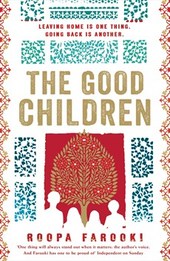
How well-prepared are such good children for their future adult lives? As the novel explores, children who are discouraged from questioning authority might struggle to protect themselves by appropriately saying no. On the surface, the Saddeq offspring are successful: they have careers, relationships, children of their own. But, in different ways, they are still, even in late middle age, the insecure children their mother created, maintaining as wide a distance as they dare from their parents, still scared of their mother when duty calls them “home”. Compulsive helpers, workaholics, conflicted about intimacy; even into old age they continue striving to be good rather than happy.
| A family saga spanning three continents and sixty years, The Good Children effectively portrays the tragedy of obedience, not only for those directly affected, but for future generations and society at large. The novel opens with Sully as a postgraduate student assisting with Stanley Milgram’s famous obedience experiments. Partly prompted by the trial of the Nazi war criminal, Adolf Eichmann, this research explored the | |
Despite these heavy themes, The Good Children is not a preachy novel. While psychologically astute regarding the impact of a loveless childhood, it is never mawkish and wears its erudition lightly, with an appropriate emphasis on character and plot. However, it is rather long novel, and I felt decidedly more engaged through the first half when there was more narrative tension and fewer characters to keep track of.
The Good Children is published in the UK today by Tinder Press. Thanks to Emily Furniss for my advance proof copy.
What are your views on the paradox of “the good child”? What have you read, or written, that addresses this theme?





















 RSS Feed
RSS Feed





















